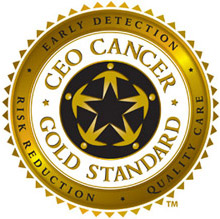
Preventative Programs
Alcohol and Other Drug Information
ATOD Mission
The mission of the Alcohol, Tobacco and Other Drugs (ATOD) Committee is to educate students about the potential negative consequences of drug and alcohol use and/or abuse. Through innovative programming, peer education, campus outreach, and community collaborations, the ATOD Committee serves to create a harm-free environment in which students can achieve their academic goals and acquire skills necessary for life-long success.
ND State Amnesty Law
North Dakota has a medical amnesty law for alcohol-related emergencies. ND Century Code states: "An individual under twenty-one years of age is immune from criminal prosecution under this section if that individual contacted law enforcement or emergency medical services and reported that another individual under twenty-one years of age was in need of medical assistance due to alcohol consumption, provided assistance to the individual in need of medical assistance until assistance arrived and remained on the scene, or was the individual in need of medical assistance and cooperated with medical assistance and law enforcement personnel on the scene. The maximum number of individuals that may be immune for any one occurrence is five individuals.
Refer a Student, Faculty, or Staff Member of Concern
The welfare and success of the MSU community is our priority. Interventions are needed when someone experiences distress that negatively impacts them academically, emotionally, behaviorally, or physically. Distress may result in displays of different types of behaviors that raise concerns. Persons in distress may benefit from a personal referral or other personalized outreach to connect them with support resources available on campus. The goal is to support persons in the MSU community who may be in distress or whose behavior is of concern to others BEFORE they rise to crisis levels.
Steps for Addressing Students of Concern
Follow the chart to determine who to contact when faced with a distressed or distressing student.
» Referral Guide [pdf]
» Assisting the Distressed Student Manual [pdf]
» Contact a BIT Member [pdf]
Refer to BIT
» Online BIT Referral Form
Opioid Overdose Prevention
In response to the nationwide opioid overdose epidemic, MSU has implemented an opioid overdose prevention program on campus. This program is intended to increase awareness of opioid overdose and increase the availability of Narcan (naloxone) on campus. Many MSU staff, security officers, and resident assistants have been trained on the administration of Narcan nasal spray. An opioid overdose can cause respiratory depression and can lead to death. If you witness someone who may be having an opioid overdose, Narcan nasal spray can be administered to reverse these effects if given in a timely manner.
Narcan kits are located at:
- MSU Campus Security Office
- Lura Manor, behind RA’s desk
- Cook Hall, behind RA’s desk
- Crane Hall, behind RA’s desk
- Dakota Hall, behind RA’s desk
- McCulloch Hall, behind RA’s desk
- Pioneer Hall, behind RA’s desk
- MSU Dome, 1st floor, by the AED; 3rd floor
- Student Health Clinic, Lura Manor
North Dakota Century Code 23-01-42. Opioid antagonist prescription, distribution, possession, or use – Immunity from liability.
- A health care professional acting in good faith may directly or by standing order prescribe, distribute, or dispense an opioid antagonist, if the health care professional provides training to:
- An individual at risk of experiencing an opioid-related overdose; or
- A family member, friend, or other individual in a position to assist an individual at risk of experiencing an opioid-related overdose.
Narcan Program Guidelines [pdf]
Narcan Power Point [pdf]
Narcan Standing Orders [pdf]
Narcan Training Video
Tobacco-Free Campus Policy

Effective January 1, 2009
Rationale for Policy
To become a "CEO Cancer Gold Standard institution," Minot State University must help fight cancer, by meeting three goals: risk reduction through lifestyle change, early detection and quality care. Part of reaching these goals includes establishing and enforcing a tobacco-free worksite policy and providing health benefit plan coverage for tobacco treatments (counseling and medications).
The health hazards of tobacco use have been well established. Cigarette smoking kills nearly 500,000 Americans annually. Secondhand smoke is a Class A carcinogen (cancer-causing agent); according to the 2006 US Surgeon General’s Report, there is no safe level of exposure to secondhand smoke. Smokeless tobacco contains 28 carcinogens, and according to the Centers for Disease Control and Prevention, is known to increase the risk of developing cancer of the oral cavity.
This policy is established to protect the health and promote the wellness and safety of all students, employees and the general public.
Definitions
For purpose of this policy, tobacco use includes the possession of any lighted tobacco product or the use of any oral tobacco product, including electronic cigarettes.
Policy
The use of tobacco on university property, indoors or outdoors or in university vehicles, is prohibited at all times. This prohibition includes smoking in personal vehicles parked on university grounds. The policy applies to all employees, students and visitors. This policy also applies to external individuals or companies renting or using space with MSU and should be reflected in all agreements/contracts with such individuals or companies. Minot State University is a tobacco-free campus.
To support those who are interested in quitting tobacco use, all benefitted employees have available to them, through the North Dakota Public Employees Retirement System Health Care Plan, a North Dakota Tobacco Cessation Program. For more information, call 1-800-223-1704. For others, assistance in quitting tobacco use is available locally through the First District Health Unit at 852-1376. The North Dakota Tobacco Quitline is also available at 1-866-388-7848 for those interested in quitting tobacco use.
Responsibility/Enforcement
The responsibility lies with the employees, students and visitors of Minot State University to abide by this policy.
A student in violation should be reported to the vice president for student affairs. An employee in violation should be reported to his or her supervisor. Repeated violation by a student will result in disciplinary action as outlined in the Student Conduct Policy in the Student Handbook. Repeated violation by employees will result in disciplinary action as outlined in applicable State Board of Higher Education policies. Visitors who persist in noncompliance must be directed off university grounds.
Communication
Current smoke-free signs on campus will be replaced with similar, tobacco-free/smoke-free signs. This policy and explanation will be printed in university-approved publications, including the Student Handbook, the Faculty Handbook, and other publications, as deemed necessary. It is also posted on the Staff and Faculty webpage and in the MSU Human Resource Policy and Procedure Manual found on the Human Resources webpage.
Information regarding the Tobacco-free Campus Policy will be included in formal and informal orientations for new students and employees. This policy will be sent out as a reminder, through campus announcements, at the beginning of each semester/term.
Organizers of events are responsible for communicating this policy to attendees.
Ceremonial Use Exception
The tobacco-free policy may not apply to specific activities used in connection with the practice of cultural activities by American Indians that are in accordance with the American Indian Religious Freedom Act, 42 U.S.C. 1996 and 1996a, All ceremonial use exceptions must be approved in advance by the President of Minot State University or designee.
Benefits of Being Tobacco Free
- Normal blood pressure, pulse, and body temperature
- Minimize chances of heart attacks
- Cilia in the lungs re-grow, increasing the lungs ability to handle mucus, clean themselves, and reduce infection
- Coughing, sinus congestion, fatigue, and shortness of breath decreases
- Overall energy level increases
- Decrease chances of lung, throat, kidney, and pancreas cancers
- Fresh breath
- Whiter teeth
- Save money!
Within 20 Minutes of Quitting
- Within 20 minutes of quitting: Your heart rate drops
- 12 hours after quitting: Carbon monoxide level in your blood drops to normal
- 2 weeks to 3 months after quitting: Your heart attack risk begins to drop. Your lung function begins to improve
- 1 year after quitting: Your added risk of coronary heart disease is half that of a smoker’s
Links - For More Information on the Cessation Programs





